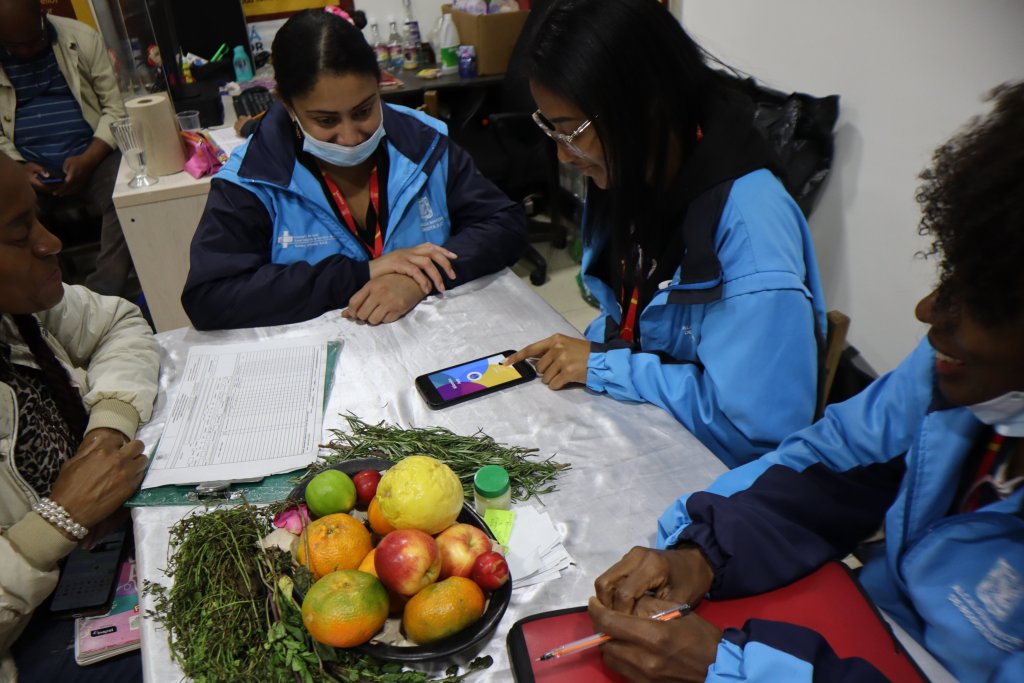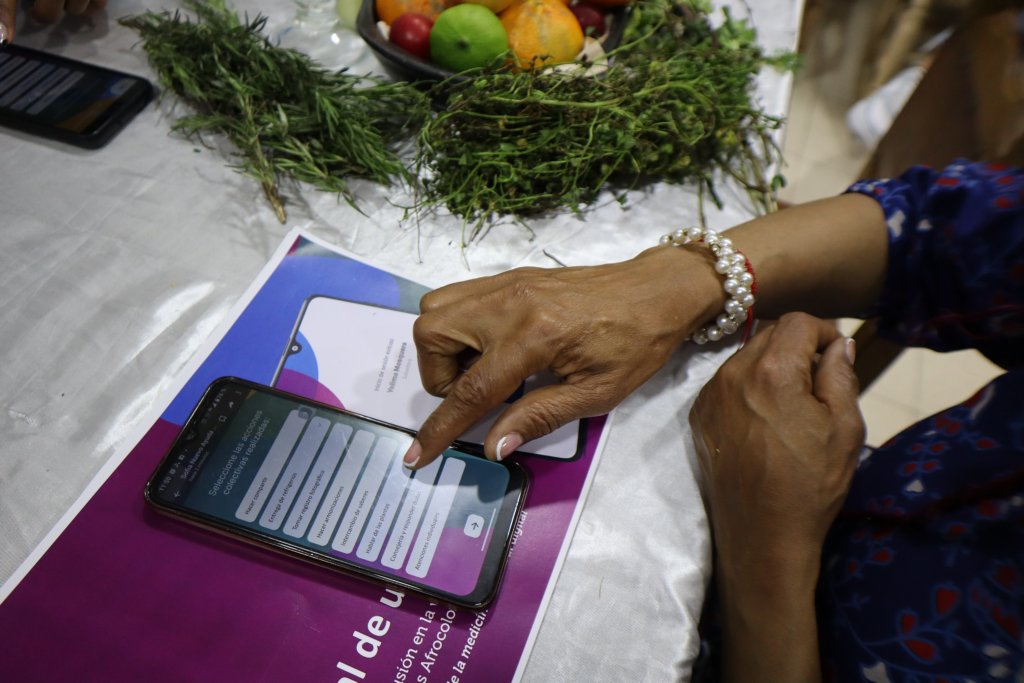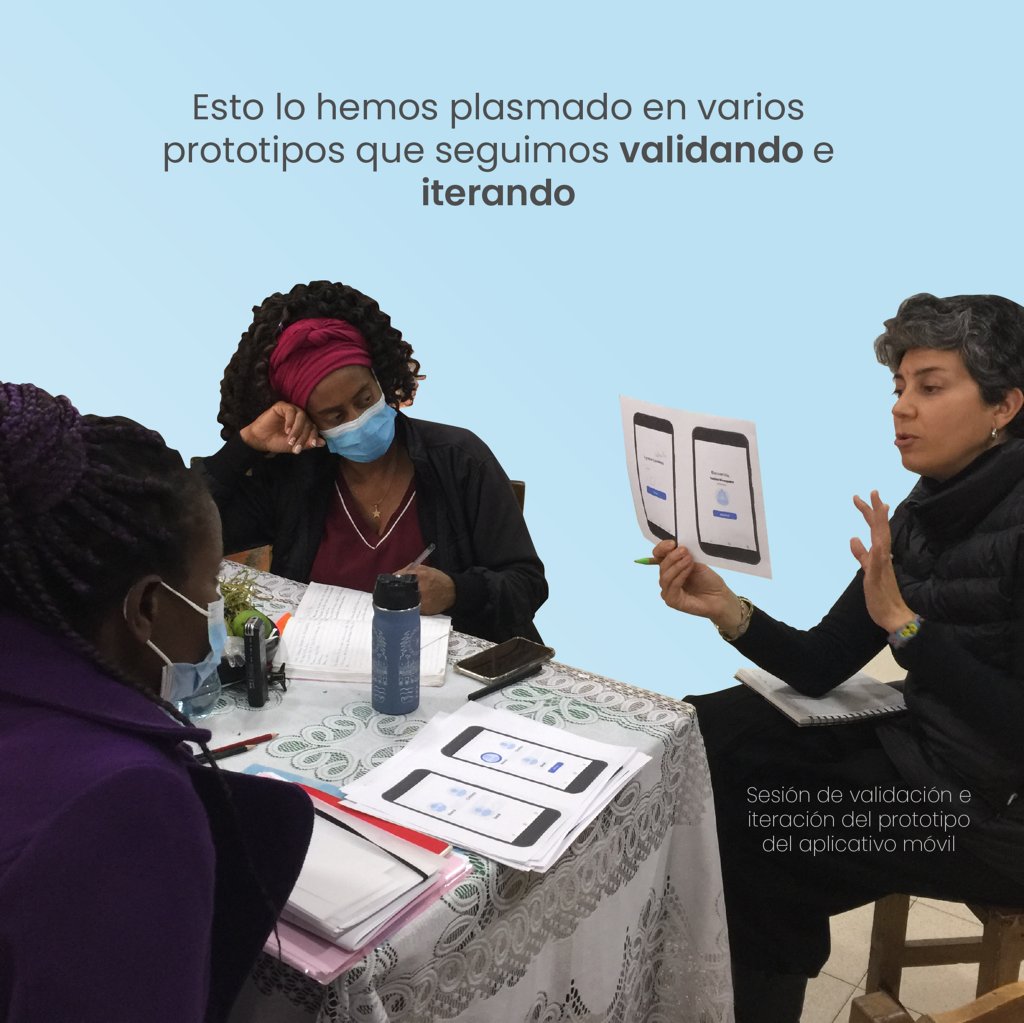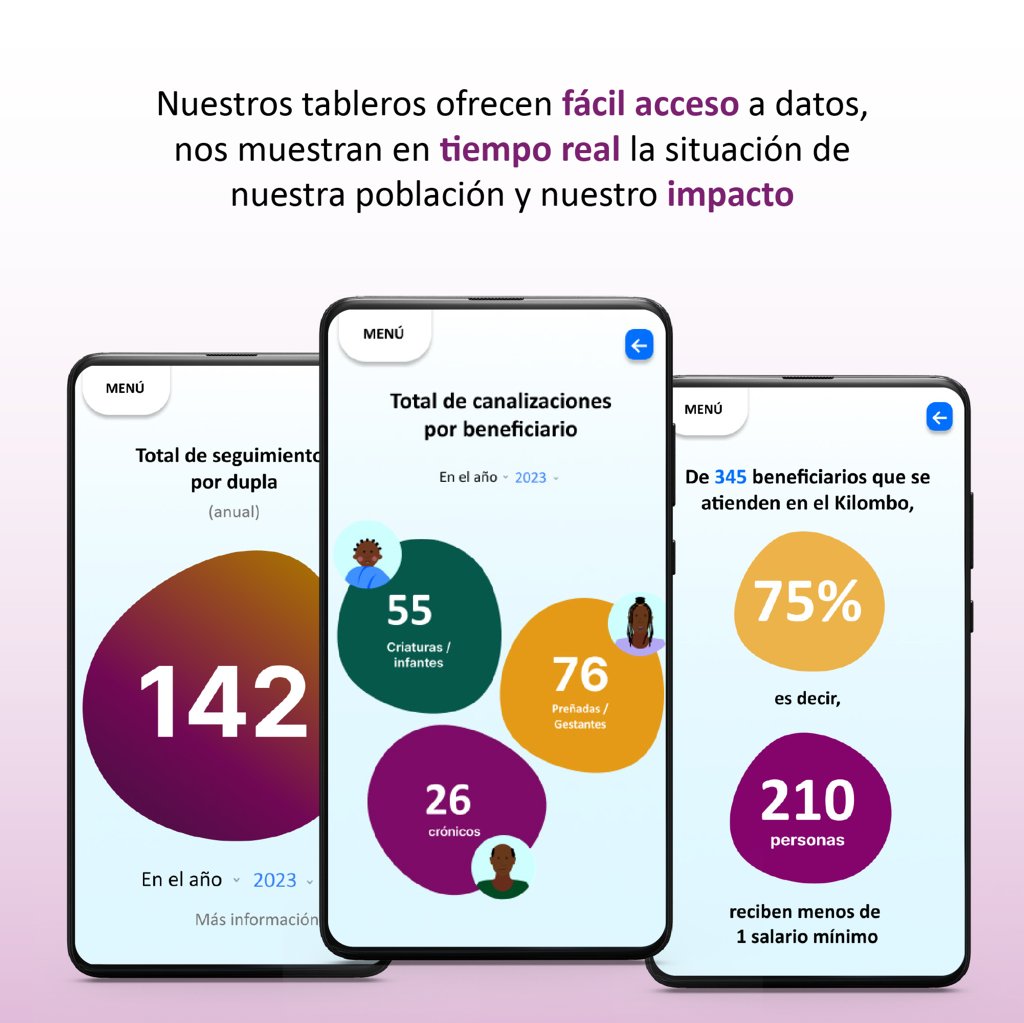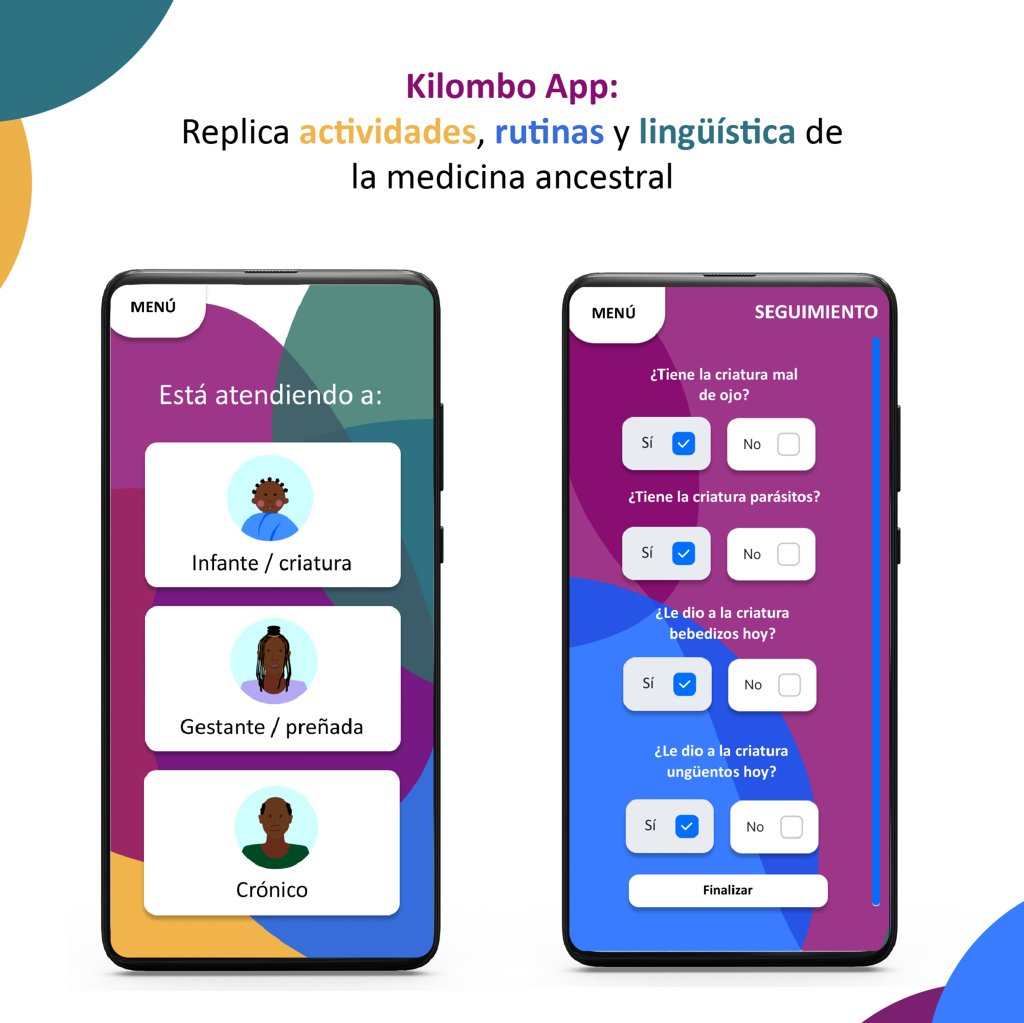Laura Niño Caceres
Mortality of pregnant ethnic minorities is increasing in Colombia. Kilombos are ethno-medical units in the capital of the country (Bogota), bridging ethnic minorities to the national healthcare system. These units were founded by Afro-Colombian midwives and nurses who provide culturally competent health services to their civil war peers settled in Bogota. To achieve visibility of their impact and practice, a mobile app has been designed using systems and HCI to capture the richness of their practices into a digital format.
The data collected showcases the health situation of their population, plus their impact through the number of people at risk identified and referred to the healthcare system, in real-time. The app increases efficiency as it replaces paper and pen formats, while connecting these units to digital health networks. Last but not least, the data seeks to build a case to make this combined approach of ancestral and western medicine a national public policy. How to increase social and health equity for Afro-Colombians through systemic design and HCI?
Covid-19 accelerated digital healthcare technologies in Colombia. However, with a significant cultural indigenous and Afro-Colombian heritage, not every part of the country is willing to follow the proposed digital western approach to health. Regrettably, there is a dominant western narrative led by the national healthcare system, which undermines ancestral medicine.Seeking social and health justice, and understanding the digital conjunction, Kilombo Yumma, ethnomedical unit, decided to build its own mobile app. This aims at safeguarding and representing their ancestral medicine practices in wider local and national information systems as a way to create more visibility and representation for their ancestral medicine currently existing in the hands of limited elderly women.
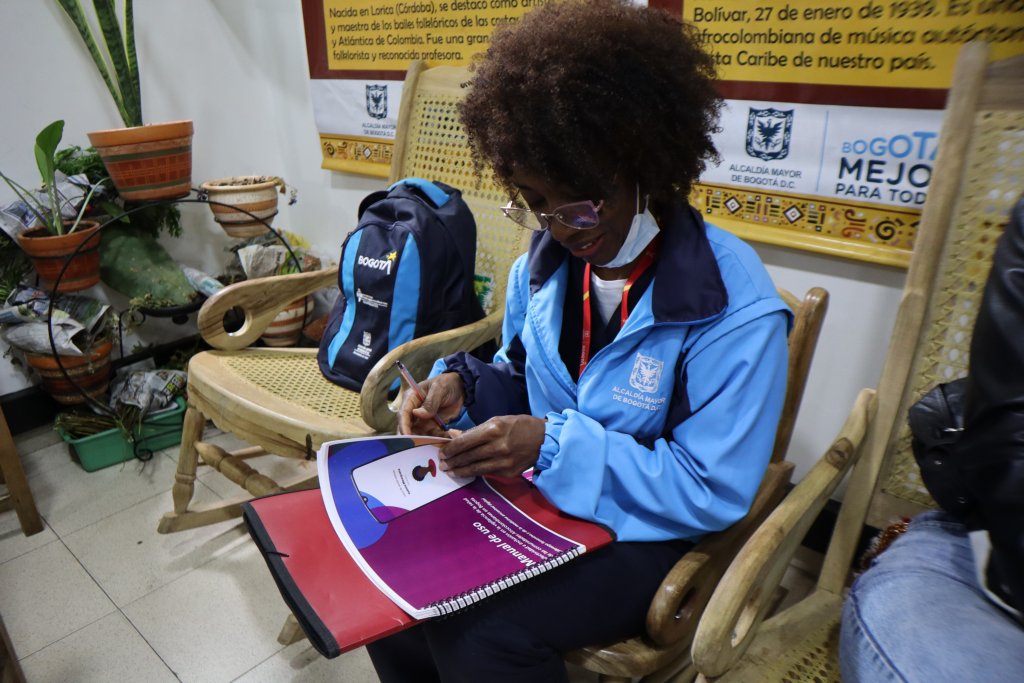
Systemic design seeks social transformation involving policy-making and community design (Jones, 2020: van der Bijl-Brouwer & Malcolm, 2020). Decolonizing HCI argues that technologies have been designed in the western world and that follow western values, which ultimately perpetuate the subordination and colonialist structures when dealing with non-western communities (Das & Semaan, 2022). Regrettably, design methods such as user centred design, overlook structural issues such as political inequality, gender and race disparities. These methods led to one size fits all solutions, including mobile apps, which consequently leads to systemic exclusion of non-western communities (Smith et al, 2021: Das & Semaan, 2022). Through co-design, the Kilombo App was created with the personnel of Kilombo Yumma. The linguistics, routines and logic of Kilombo are reflected in the information architecture of the app, symbols and tasks. Dashboards were carefully designed to inform and empower Kilombos personnel vis-a-vis public institutions.
Through continuous collection of data of Kilombo units practices, the app seeks to safeguard their practices and fight to become part of the national healthcare policy of the country through data. The app was recently launched. It is in the process of being implemented by the community health worker of Kilombo Yumma, a role who is more familiar with administrative data daily. Expectations are high and major organisational elements were arranged to enable the data collection through the app. Limitations of this case include, the pending acceptance of the local health secretary and enough data to seize the opportunity identified.




